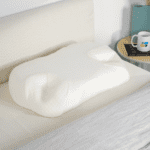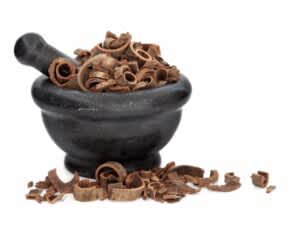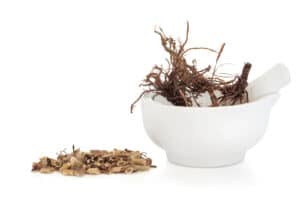Medical Disclaimer: The following content should not be used as medical advice or as a recommendation for any specific supplement or medication. It is important to consult your health care provider prior to starting a new medication or altering your current treatment.
Magnolia bark has been used for centuries in traditional Chinese medicine to treat an array of conditions including depression, anxiety, and sleep issues like insomnia. Magnolia bark continues to be used in dietary supplements today, marketed for potential benefits like reducing stress, decreasing inflammation, and as a natural sleep aid.
Although laboratory and animal research has shown that magnolia bark may have a number of medical uses, more studies are needed to determine whether it can measurably improve sleep. We discuss the current state of research and how magnolia bark may be used as a treatment for insomnia and other conditions.
What Is Magnolia Bark?
Magnolia bark is a medicinal plant and is sometimes referred to by its botanical name, Magnolia officinalis, as well as its traditional names, Houpo or Hou Po. In biomedical research, the primary active compounds in magnolia bark are called magnolol and honokiol.
Magnolia bark is available in the form of tablets or powders containing bark extract. When used medicinally, magnolia bark extract is often combined with other substances. In fact, much of the research done so far has studied the effects of magnolia bark in combination with other things, like calcium, magnesium, zinc, and phellodendron.
Can Magnolia Bark Help You Sleep?
Magnolia bark has long been used in traditional Chinese medicine to help with sleep. However, there is not yet enough scientific evidence to determine whether it’s effective for this purpose in humans.
While some studies in mice suggest that extracts from magnolia bark may shorten the time it takes to fall asleep, it has not been extensively studied in humans. Though in one human study, magnolia bark extract combined with the mineral magnesium was shown to reduce sleep disturbances.
Research has shown that magnolia bark may be helpful in reducing stress and anxiety, both of which can interfere with sleep. A study that measured cortisol, considered a stress hormone, showed that magnolia bark extract combined with phellodendron reduced cortisol levels in the body. People who took the supplement felt less stressed when compared to people who didn’t.
Despite its long traditional use for anxiety and some promising preliminary evidence, the use of magnolia bark extracts to help people relax is not widely accepted. Some experts say there is not sufficient evidence proving that magnolia, when combined with phellodendron, is effective at treating anxiety.
Other Benefits of Magnolia Bark
Magnolia bark extract has shown promise in laboratory and animal research but in many cases, more research in humans is needed to prove that it can be effective. A number of uses have been investigated.
- Treating inflammation: Magnolia bark’s active compounds, magnolol and honokiol, are strong antioxidants that have been shown to reduce inflammation in animals. Laboratory studies have also shown an anti-inflammatory effect.
- Lowering blood sugar: The active compounds in magnolia bark improved insulin sensitivity and lowered blood sugar in both laboratory research and animal studies. However, these abilities have not yet been proven in human studies.
- Treating infection: Laboratory research has shown that magnolia bark can work against bacteria that cause some infections.
- Preventing cancer: Laboratory research suggests that magnolia bark may help prevent cancer, but human research is needed to test this potential use.
- Easing depression: Research conducted in a lab suggests that magnolia bark may be able to help normalize brain chemicals that affect depression. Human research suggests that magnolia bark may help improve mood.
- Managing weight: While more research is needed, animal studies have shown that one of magnolia bark’s active compounds, honokiol, helps improve fat metabolism and insulin resistance. A small human study suggested that magnolia bark may help reduce stress-related eating.
- Improving digestion: Animal studies suggest that magnolia bark may help ease digestive problems and protect against ulcers.
- Maintaining brain health: Animal studies suggest that honokiol, one of the active compounds in magnolia bark, may prevent the death of brain cells and stop the buildup of harmful proteins that are linked to Alzheimer’s disease.
Having Trouble Sleeping?
Sleep aids can help, but it’s important to address underlying issues like sleep apnea. Answer these questions to see if you’re at risk.
How Does Magnolia Bark Work?
There are two biologically active compounds in magnolia bark extract that scientists believe are responsible for its beneficial effects.
- Magnolol: One effect of magnolol is to act upon neurochemical receptors in the brain. Researchers believe that magnolol could help restore the normal function of chemicals in the brain, which could help with anxiety, depression, and insomnia.
- Honokiol: After a long history of use in Asian medicine, honokiol is being studied for its potential uses for anxiety, pain, diseases affecting the blood vessels, seizures, and Alzheimer’s disease. While research is ongoing, animal research found that giving honokiol helped mice fall asleep faster.
Research has shown that magnolol and honokiol interact with brain chemistry in a way that promotes relaxation and sleep. Specifically, these compounds – especially honokiol – interact with a brain chemical called GABA in a way that is similar to sedative drugs like benzodiazepines.
Lab studies have also shown that magnolol and honokiol also interact with cannabinoid receptors in the brain. Cannabinoid receptors are sites on nerve cells that are concentrated in the parts of the brain that influence pleasure, perception, and coordination. Interactions between magnolol and honokiol and cannabinoid receptors may help reduce pain, improve mood, and lower inflammation.
Magnolia Bark Dosage
Recommended dosages of magnolia bark extract vary depending on a person’s weight, whether a tea or bark extract is used, and what condition is being treated. Because the dosages can vary widely based on the preparation and use, it may be helpful for people to work with a physician to find an appropriate dose.
In general, when tea is made by boiling the bark, 3 to 10 grams are used. Dosages of extracts range from 200 to 800 milligrams a day.
Is Magnolia Bark Safe?
Magnolia bark has not yet been proven to be safe. There have been only a handful of studies of magnolia bark in humans. Safety studies in animals have not revealed any toxic effects linked with magnolia bark, but these studies are limited.
Since magnolia bark is considered a dietary supplement, rather than a medicine, its safety is not scrutinized as carefully as medicines by the Food and Drug Administration (FDA).
The FDA has warned the public that ingredients in dietary supplements like magnolia bark may have strong, druglike effects, so it is important to discuss using them with a doctor.
Magnolia bark extracts, as well as preparations using magnolia bark in combination with other substances, may interfere with the actions of certain medications. Magnolia bark extracts have the potential to intensify or change the effects of certain drugs and could be risky. Experts recommend against using magnolia bark extract if you currently take:
- Drugs to thin your blood
- Medication for diabetes
- Anti-anxiety medication
- Sleeping pills
There are potential interactions between magnolia bark and other drugs as well. It is important to talk to your doctor before using a supplement containing magnolia bark.
Potential Side Effects of Magnolia Bark
Although there have not been very many human studies of magnolia bark extracts, the few studies that have been conducted so far have not shown many side effects. One study showed that 94% of participants taking magnolia bark extract experienced no side effects. The rare side effects that were reported included heartburn, numbness, sexual issues, and thyroid problems.
References
Ask the Sleep Doctor
Have questions about sleep? Submit them here! We use your questions to help us decide topics for articles, videos, and newsletters. We try to answer as many questions as possible. You can also send us an email. Please note, we cannot provide specific medical advice, and always recommend you contact your doctor for any medical matters.




































